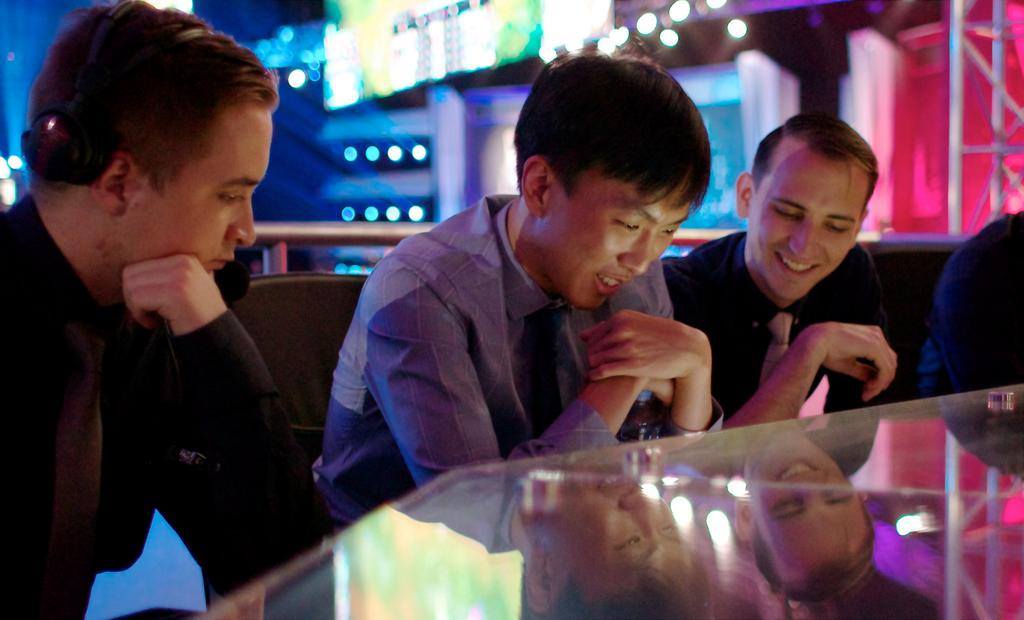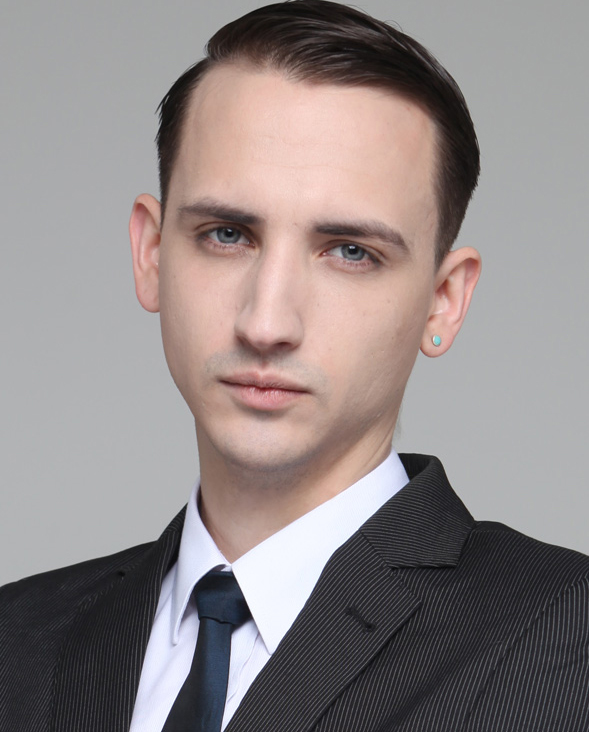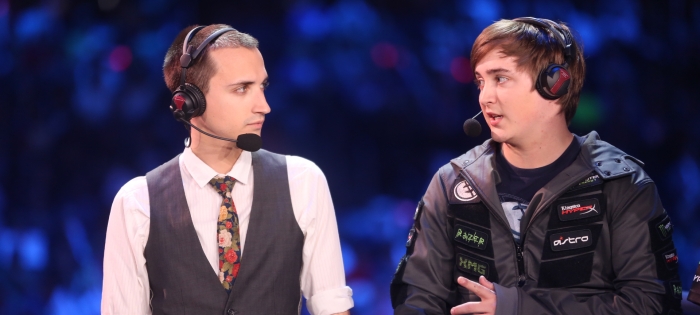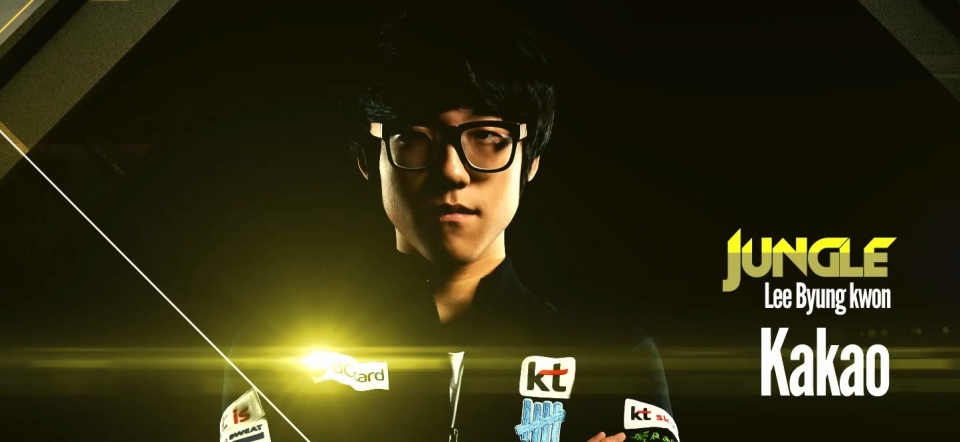

Article by James Chen
As an analytical caster and former coach of North America's Counter Logic Gaming, one of League of Legends' most venerable teams, OnGameNet Champions' Christopher "MonteCristo" Mykles' presence on the 2014 World Championship live analysis desk in Busan and Seoul, South Korea wasn't just expected, it was a hotly demanded feature by the community. And as co-host of podcast Summoning Insights, alongside the oft-controversial Duncan "Thooorin" Shields, he's no stranger to controversy and criticism either.
So, as the one caster at Worlds not under Riot's aegis, who better to ask for a professional opinion on the production quality of the year's most hyped e-sports tournament?
"Dangerous, dangerous topic for me!" laughed Mykles. But he was overall impressed by the month-long spectacle. "I think, obviously, there were numerous successes. It was impressive they were able to move the events smoothly between four different cities in a month's time. And also, just the end-spectacle of the World Cup stadium was definitely something e-sports has pretty much never seen before. They did it on a scale which I didn't think should have been possible, given that they only had a few days to install that in the venue and check everything."

But the international undertaking didn't come away entirely free of issues. "In terms of the most disappointing thing: I felt that, because of the schedule, a lot of times the pacing of various segments between the analyst desk and main broadcast—or showing certain promotional videos—was often rushed." The same logistical successes were also sometimes weak points. In his eyes, less travel, less movement and a more stable environment would've ironed out the major wrinkles.
"I think that moving from city to city within the same country was a lot easier than moving from country to country, due to various regulations. Having to train new local camera operators every single time, who spoke different languages... To be fair, I wasn't there for the two legs of the group stage, but that's just what it seemed to me, when the analyst desk had to move to Korea and we had all these new Korean operators."
Keep up to date with the most important stories and the best deals, as picked by the PC Gamer team.
As for the games themselves: in contrast to last year's seeded format and best-of-three playoffs, Mykles enjoyed the 2014 system. "The only thing I would've changed about the tournament structure was having the quarterfinals be drawn a little more randomly. Having the first seeds randomly draw the second seeds, and not be from the same group. I think that would've made things more random and prevented any possible match-fixing for who the people were going to face in the quarterfinals."
"I think this is going to be a big wake-up call for the Korean scene, where if they want to retain talent, they need to pay players significantly more money."
He was a little nervous of the Samsung White versus Blue match-up as a result, as the two Korean sister teams were inherently the most likely to collude. "Yeah, yeah. It didn't happen, but it could have. Potentially. But, otherwise, I think the format was pretty good. I'm really happy that everything changed for two best-of-fives, and I think it was—for the most part—a very exciting tournament."
The one sour spot on the month-long agenda was the first week of the group stage, back in Taipei, where Group A was all but determined before the games even started. "I think we got a lot better games than last year. I hope they continue to use this format in the future. The one thing that I would change is that, instead of having international wild cards seeded directly into Worlds, I would take the IWC teams and pit them against the fourth-place teams of North America, Europe, Korea and China, and the third place team from Southeast Asia. Then, I would play a separate tournament for the last two slots of Worlds, and if the IWC teams can win under those conditions, then they deserve to go to Worlds. And if they can't, then we get the 4th-place Korean, or 4th-place European teams to Worlds instead, and I think that would've made groups A and B a lot more exciting."
As for OnGameNet Champions, Korea's domestic circuit that feeds into the Worlds stage, "exciting" is an apt description for the turmoil and changes affecting a tournament that's produced world champions two years in a row. Even before the end of Worlds, rumors were flying about a massive exodus of pro players to China, Europe and elsewhere—rumors that were later solidified as KT Bullets' star jungler, Kakao, announced his intent to compete in the neighboring pan-Asian giant.

The exodus of Korean players is unprecedented in e-sports history—even with StarCraft 2, only a few players signed by western teams outright relocated to a new country and new scene. "I think the biggest disturbing point is Rookie and Kakao left, who were on a current reigning winners-of-Champions team," said Mykles. "That's really weird, because if you had to name the top three players who weren't at Worlds, you'd probably say 'Kakao, Rookie and Faker.' Now two of them aren't going off. Ostensibly, it's because the Chinese teams pay better. It is baffling to me that the Chinese teams can pay better than a multi-billion dollar corporation like KT, SK Telecom or Samsung.
"I think that shows that the Korean players are not being very well compensated. Which is also strange compared to the Brood War days, where Flash would be making $500,000 a year. The KeSPA teams are accustomed to paying superstar players superstar salaries, but we're just not seeing that right now for whatever reason. I think this is going to be a big wake-up call for the Korean scene, where if they want to retain talent, they need to pay players significantly more money."
As for Kakao, formerly a teammate of Worlds second-place team Star Horn Royal Club's InSec: "If he does go to China, Kakao is a much more planning-oriented jungler. If he has sufficient ability to communicate with his team, I would expect Kakao to outperform InSec."
PC Gamer is the global authority on PC games—starting in 1993 with the magazine, and then in 2010 with this website you're currently reading. We have writers across the US, Canada, UK and Australia, who you can read about here.


